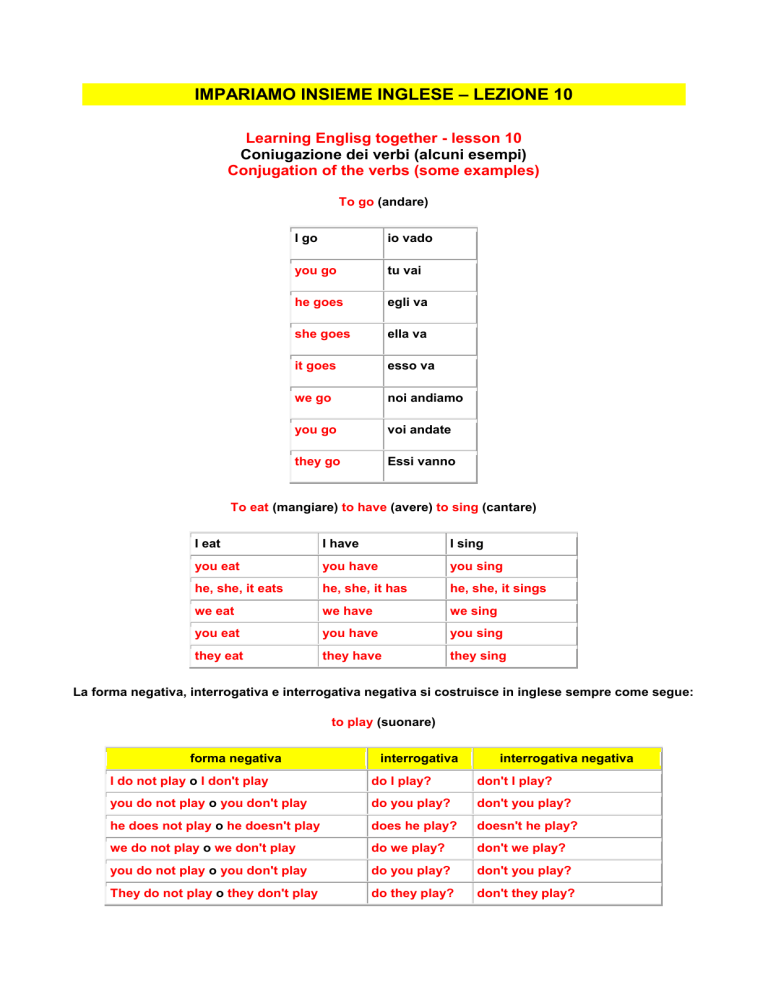
IMPARIAMO INSIEME INGLESE – LEZIONE 10
Learning Englisg together - lesson 10
Coniugazione dei verbi (alcuni esempi)
Conjugation of the verbs (some examples)
To go (andare)
I go
io vado
you go
tu vai
he goes
egli va
she goes
ella va
it goes
esso va
we go
noi andiamo
you go
voi andate
they go
Essi vanno
To eat (mangiare) to have (avere) to sing (cantare)
I eat
I have
I sing
you eat
you have
you sing
he, she, it eats
he, she, it has
he, she, it sings
we eat
we have
we sing
you eat
you have
you sing
they eat
they have
they sing
La forma negativa, interrogativa e interrogativa negativa si costruisce in inglese sempre come segue:
to play (suonare)
forma negativa
interrogativa
interrogativa negativa
I do not play o I don't play
do I play?
don't I play?
you do not play o you don't play
do you play?
don't you play?
he does not play o he doesn't play
does he play?
doesn't he play?
we do not play o we don't play
do we play?
don't we play?
you do not play o you don't play
do you play?
don't you play?
They do not play o they don't play
do they play?
don't they play?
Le contrazioni sono sempre usate negli Stati Uniti, sopprimendo la vocale.
To have (avere) nell'inglese d'Inghilterra si costruisce come to be, cioè senza il to do, mentre
negli Stati Uniti vuole sempre il to do, come qualsiasi altro verbo; esempi:
forma negativa: I don't have - you don't have - he (she-it) doesn't have ...
forma interrogativa: do I have?- do you have?- does he (she-it) have? ...
forma interrogativa negativa: don't I have?- don't you have?- doesn't he (she-it) have?- don't
we have?- don't you have?- don't they have?
